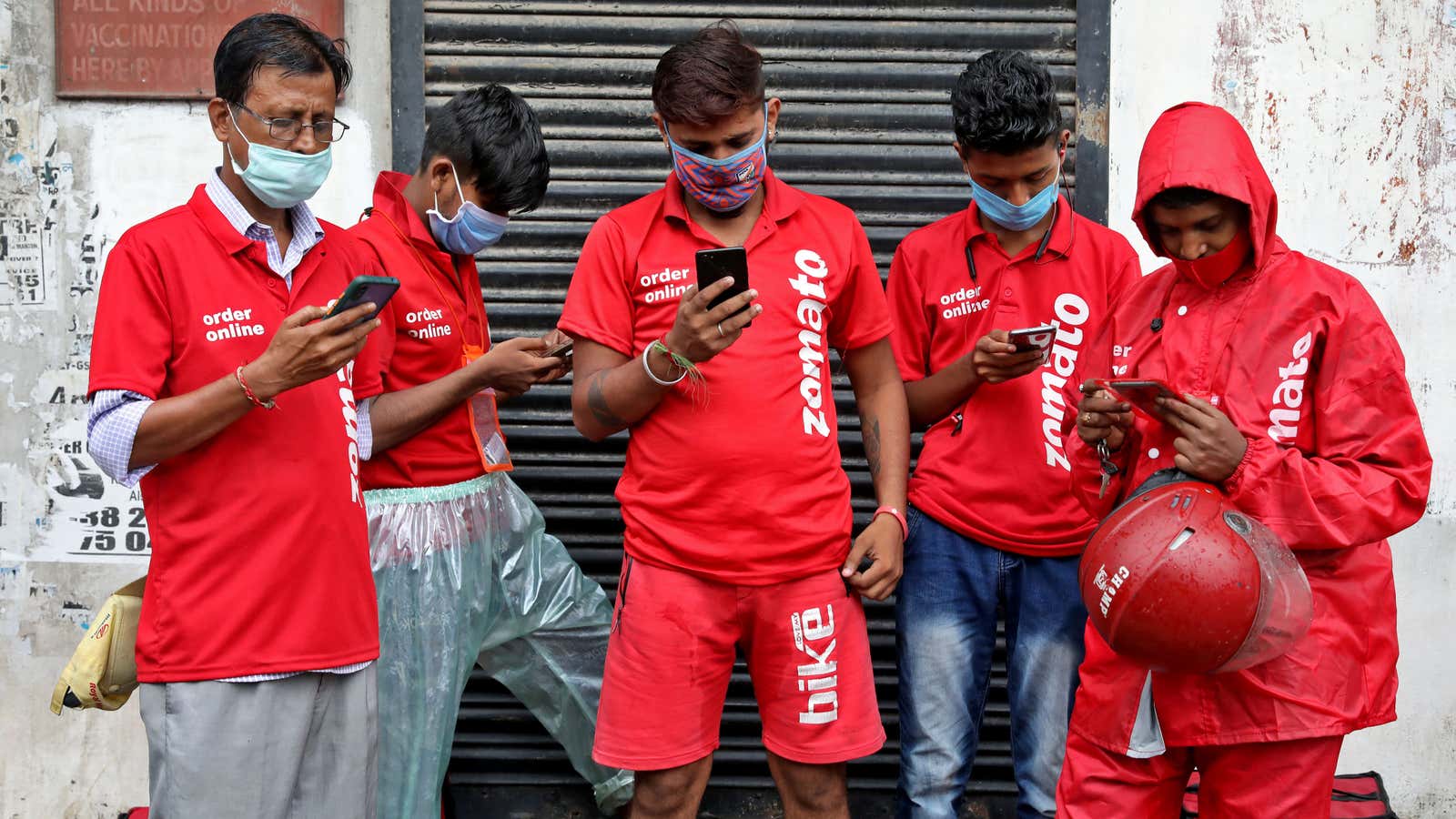Restaurant discovery and food delivery firm Zomato’s IPO is generating a ton of excitement among Indian stock market investors. But regular investors waiting to buy shares of the company may be in for some disappointment.
In Zomato’s debut on the BSE today (July 14), just 10% of the share will be available for retail investors.
“Whenever it is 35% also, we don’t get it (shares) many times…do we really feel we are so lucky that we’re going to get the IPO in 10% allocation also? It’s going to be terribly difficult,” chartered accountant and financial content creator Rachana Ranade said in a July 13 YouTube stream.
The IPO that launched today will be open until July 16. Shares are being offered between Rs72 and Rs76 apiece.
The question is, where is the other 90% going?
Who will invest in Zomato’s IPO?
Although the Securities and Exchanges Board of India (SEBI) allows loss-making entities to go public, companies have to allot 75% of their net public offer to Qualified Institutional Buyers (QIBs). The QIBs are SEBI-registered public financial institutions, commercial banks, mutual funds, and foreign portfolio investors.
As much as 15% of the shares on offer in the IPO are reserved for non-institutional investors, which refers to any entity—individuals, companies, or societies—who apply for more than Rs200,000 worth of IPO shares. Another 6.5 million shares are also reserved for Zomato’s employees in this case.
The restaurant-listing and food-delivery platform plans to “allocate up to 60% of the QIB Portion to anchor investors on a discretionary basis,” it said in its offer document (pdf). Anchor investors are a subset of the QIB category, referring to investors that make an application for a value of Rs10 crore ($1.3 million) or more through the book-building process.
On July 13, ahead of its IPO opening, Zomato had already raised over Rs4,196 crore from over 186 anchor investors, including marquee international and domestic firms like Tiger Global, Blackrock, Fidelity, JPMorgan, HDFC Mutual Fund, Tata Mutual Fund, and Abu Dhabi Investment Authority, among others.
Experts suggest the IPO may be too risky for individual investors given that the company is still burning a ton of cash. Moreover, it exists in a duopoly with Bengaluru-based Swiggy, which could not only challenge its success in the future but also draw scrutiny from competition regulators. Both Motilal Oswal and Choice Brokerage recommend that investors with a higher risk appetite and a long-term investment horizon subscribe to this IPO.
